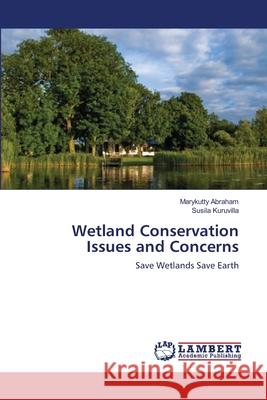Wetland Conservation Issues and Concerns » książka
Wetland Conservation Issues and Concerns
ISBN-13: 9783659105975 / Angielski / Miękka / 2012 / 328 str.
Wetlands are ecotones or transitional zones that occupy an intermediate position between dry land and open water. More recently, society has begun to understand the functions of wetlands and the values humans obtain from them. Wetlands help regulate water levels within watersheds, improve water quality, reduce flood and storm damages, provide important fish and wildlife habitat and support hunting, fishing and other recreational activities. Wetlands are important features in watershed management. Wetlands support a wide array of flora and fauna and deliver many ecological, climatic and societal functions. Scientists often refer to wetlands as the "kidneys" of the earth and forests as the "lungs" of the earth Kerala is well known for its wetlands. These wetlands provided livelihood to the residents in the area in the forms of agricultural produce, fish, fuel, fiber, fodder, and a host of other day-to-day necessities. Infrastructure development in the form of roads, railways, and other lines of communication fragmented the contiguity of the wetlands, and destroyed extensive tracts of coastal vegetation thereby upsetting the entire complex ecology.
Wetlands are ecotones or transitional zones that occupy an intermediate position between dry land and open water. More recently, society has begun to understand the functions of wetlands and the values humans obtain from them. Wetlands help regulate water levels within watersheds, improve water quality, reduce flood and storm damages, provide important fish and wildlife habitat and support hunting, fishing and other recreational activities. Wetlands are important features in watershed management. Wetlands support a wide array of flora and fauna and deliver many ecological, climatic and societal functions. Scientists often refer to wetlands as the "kidneys" of the earth and forests as the "lungs" of the earth Kerala is well known for its wetlands. These wetlands provided livelihood to the residents in the area in the forms of agricultural produce, fish, fuel, fiber, fodder, and a host of other day-to-day necessities. Infrastructure development in the form of roads, railways, and other lines of communication fragmented the contiguity of the wetlands, and destroyed extensive tracts of coastal vegetation thereby upsetting the entire complex ecology.











